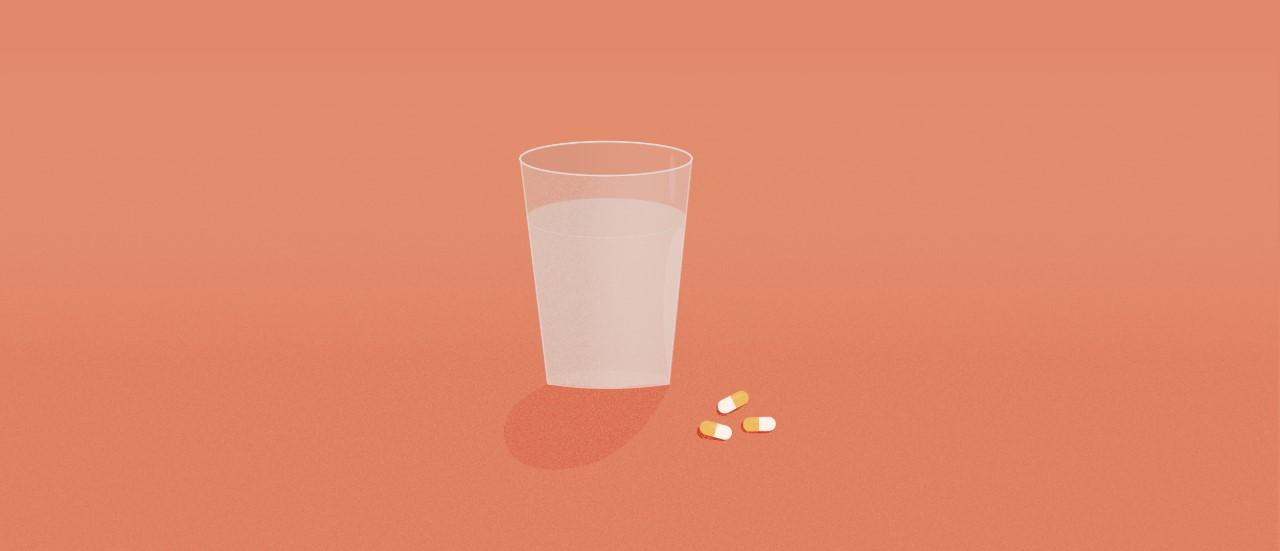
Should you worry about steroids and their side effects?
Peer reviewed by Dr Colin Tidy, MRCGPAuthored by Dr Sarah Jarvis MBE, FRCGPOriginally published 10 Mar 2019
- DescargarDescargar
- Compartir
Steroids have had a bad press over the years - a combination of their side effects and misuse of anabolic steroids by bodybuilders. But we actually make steroids in our own bodies - and used as your doctor recommends, they can be effective and safe.
En este artículo:
Seguir leyendo
¿Qué hay en un nombre?
There are three main classes of steroids you've probably heard about - although I'd stake my reputation that unless you're a doctor, you had no idea that one of these classes was a steroid at all.
Sex steroids
Sound kinky? Anything but. The male hormone testosterone, and the female hormones oestrogen and progesterone (used by over half of sexually active women in the UK needing contraception, but also made naturally in the body) are all sex steroids. Low levels of oestrogen account for many of the symptoms of the menopause; fluctuations in progesterone (or female sensitivity to it) are to blame for many symptoms of premenstrual syndrome (PMS); and low testosterone levels can lead to decreased libido, tiredness and erectile dysfunction, to name but a few.
So you could say any woman using HRT or the contraceptive pill is on steroids.
Anabolic steroids
The medical name for most anabolic steroids is anabolic-androgenic steroids. They're actually a synthetic derivative of testosterone. It's testosterone which largely accounts for increased muscle mass after puberty, so it's hardly surprising they are popular among bodybuilders.
Unfortunately, their bad health reputation is well earned. 'Roid rage' - severe mood swings and anger issues - lines up with shrinking of the testicles, severe acne and breast growth in men. And there have been suggestions they may be linked to an increased risk of heart disease and cancer.
Corticosteroides
Finally, there are the corticosteroids. Made in your body, these act as hormones or chemical messengers. They have a role in your immune system, affecting inflammation in the body.
The steroids used in medicine are almost all corticosteroids. They're prescribed in tablet, inhaler, cream/ointment and injection form for different medical conditions. Mostly they're used to reduce inflammation which is causing problems in the body.
Selección de pacientes Información sobre medicamentos

Tratamiento y medicación
Qué esperar de su consulta farmacéutica
Pharmacy First es un servicio que le anima a ponerse en contacto con su farmacéutico antes de concertar una cita con el médico para problemas de salud menores. Aunque los farmacéuticos no pueden diagnosticar ni tratar todas las afecciones médicas, están capacitados para tratar una serie de enfermedades leves y ofrecer asesoramiento experto. Pero, ¿qué ocurre durante una consulta farmacéutica? Hemos pedido a un experto que nos explique el proceso.
por Victoria Raw

Tratamiento y medicación
Medicina complementaria y alternativa
Complementary and alternative medicine (CAM) is used by many people. It can have a very good effect on improving well-being and may be helpful in relieving some symptoms. However, although there is some evidence from clinical studies that CAMs may work for certain symptoms, the evidence is not very strong and it is impossible to draw firm conclusions about the benefits of each treatment. It is very important to consider whether any CAM treatment may have side-effects. Again the side-effects of some CAM treatments, particularly some herbal remedies, are not as well known as for conventional medicines. In addition, choosing to use alternative medicine instead of medically recommended treatments can sometimes be dangerous.
por la Dra. Hayley Willacy, FRCGP
Pills and potions
Steroid tablets are used to treat serious allergic reactions like life-threatening anaphylaxis. They may be given in short courses for severe flare-ups of conditions like asthma, chronic obstructive pulmonary disease (COPD) and hives (urticaria). They're also prescribed for autoimmune conditions, where the body's immune system has turned on itself and is attacking part of the body. This includes lupus, inflammatory bowel disease, rheumatoid arthritis and multiple sclerosis.
Steroid injections are often given directly into inflamed joints to reduce pain, swelling and stiffness. This can cause temporary pain, so they're often injected along with a local anaesthetic.
Inhaled steroids come in a wide variety of inhaler devices, and are used mainly to treat asthma and COPD. They're called 'preventer' inhalers - they don't relieve wheezing or breathlessness in the short term, like 'reliever' inhalers, but they damp down inflammation if you use them regularly. This helps reduce symptoms and flare-ups which can land you in hospital. Unless your symptoms settle naturally (this can happen with asthma) you'll need to take them regularly in the long term.
Because inhaled steroids are delivered straight to the lungs, where they're needed, the dose you take is tiny compared to that in steroid tablets. That means they don't have many side effects - although they can cause a sore mouth if you don't rinse your mouth out after using them. There is some suggestion that high-dose inhaled steroids can increase your risk of pneumonia if you have COPD. Your doctor can advise you on the safest type for you.
Steroid creams and ointments come in many strengths, and are used to treat eczema, psoriasis, lichen planus and other skin conditions, to reduce inflammation. They're also useful for skin irritation due to insect bites. They don't cure the problem but they do relieve itching, redness, inflammation and soreness. Short courses of mild steroid creams are very safe and can be bought from your pharmacist. Stronger steroids can cause thinning of the skin, so use them according to your doctor's instructions.
Seguir leyendo
Side effects to know
There's no question that high-dose steroids (usually prolonged courses of steroid tablets) can have side effects. That's why your doctor will monitor you carefully, both to check for side effects and to make sure you're taking the lowest dose to control your symptoms.
Side effects include weight gain, increased appetite, high blood pressure, developing type 2 diabetes (or higher blood sugar if you already have it), acne, cataracts, glaucoma, inflammation of the stomach and stomach ulcers.
If you're on high-dose steroids, your doctor should give you tablets (usually 'proton pump inhibitors') to protect your stomach. They can also increase your risk of osteoporosis (thinning of the bones), so you'll probably be prescribed a weekly tablet to protect them. Working with your doctor and attending regular check-ups (including blood pressure and blood sugar) will help you keep safe and get the benefit you need.
If you take steroid tablets for over 10 days, never stop them suddenly; your doctor will advise how to tail them off. It's also advisable to get a 'medic alert' bracelet or similar just in case you're taken ill, so medical staff will know you're on steroid tablets.
Thanks to My Weekly where this was originally published.
Historia del artículo
La información de esta página ha sido revisada por médicos cualificados.
10 Mar 2019 | Originally published
Autores:
Dra. Sarah Jarvis MBE, FRCGPRevisado por expertos
Dr. Colin Tidy, MRCGP

¿Se encuentra mal?
Evalúe sus síntomas en línea de forma gratuita